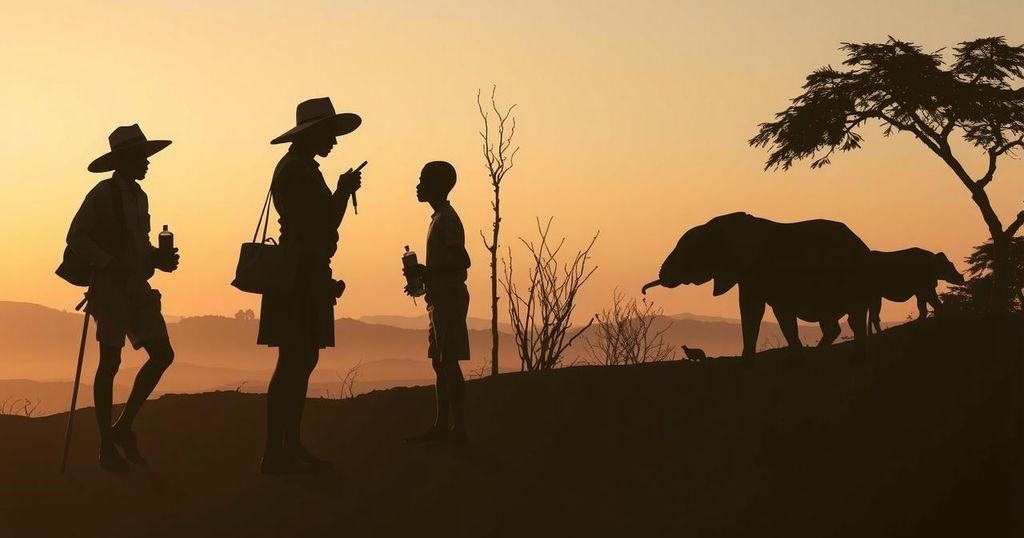In southern Africa, severe drought has led Zimbabwe and Namibia to cull elephants to provide meat to communities facing food shortages. In Zimbabwe, plans include culling 200 elephants, while Namibia has initiated similar actions. The crisis threatens millions with food insecurity. Meanwhile, in Bolivia, Indigenous efforts to restore Lake Uru Uru demonstrate proactive environmental stewardship amidst concurrent ecological challenges.
The recent drought crisis in southern Africa has forced countries like Zimbabwe and Namibia to consider culling elephants to alleviate food shortages. After facing its worst drought in forty years, Zimbabwe plans to cull 200 elephants, the first such action since 1988, and distribute the meat to approximately 7.6 million people expected to suffer food insecurity next year. This culling decision follows Namibia’s previous choice to eliminate 83 elephants and other wildlife due to similar drought conditions. The selected elephants will be removed from regions experiencing increased human-elephant conflict as people scramble for scarce resources. Wildlife officials aim to address overcrowding in national parks, where the elephant population exceeds capacity by 29,000 individuals, marking a controversial but necessary step in crisis management. Meanwhile, a promising local initiative in Bolivia demonstrates grassroots action to restore depleted ecosystems, as Indigenous women work to revive Lake Uru Uru, highlighting the intersection of environmental health and community welfare. The article provides an overview of the multifaceted challenges faced by southern Africa amid climate-induced drought, emphasizing food security issues that have emerged from the severe crop failures tied to El Niño effects. In Ghana, alternative initiatives such as plastic-for-tuition payments in Lagos present innovative solutions to urban pollution while offering educational opportunities to financially constrained families. The circumstances highlight urgent ecological and social challenges, prompting both immediate and sustainable responses from governments and communities alike.
The ongoing drought in southern Africa, significantly exacerbated by climate phenomena like El Niño, has devastated agricultural yields, leaving millions vulnerable to food insecurity. Zimbabwe, particularly hard-hit by the drought, has forecasted acute shortages that may affect over 7 million people in the upcoming lean season. In response, Zimbabwean officials have taken the unprecedented step of planning a mass culling of elephants, amid concerns over escalating human-wildlife conflicts arising from resource scarcities. Concurrently, Namibia has similarly faced the difficult decision to manage its wildlife populations in light of resource limitations. Simultaneously, initiatives within other regions, such as Bolivia’s Lake Uru Uru, illustrate the community-driven efforts to combat environmental degradation and promote sustainability. These actions are crucial to reversing ecological decline while providing vital support for local communities being adversely affected by both climate change and historical industrial impacts.
In conclusion, the severe drought impacting southern Africa presents a critical food security crisis, compelling nations like Zimbabwe and Namibia to resort to drastic measures, including the culling of elephants, to provide sustenance for vulnerable communities. This situation underscores the intricate balance between environmental management and human needs, showcasing the necessity for immediate intervention combined with longer-term strategies for ecological restoration and community support. The successful cleaning initiatives at Lake Uru Uru serve as a hopeful example of grassroots efforts towards restoring ecological health amid adverse conditions.
Original Source: www.circleofblue.org







